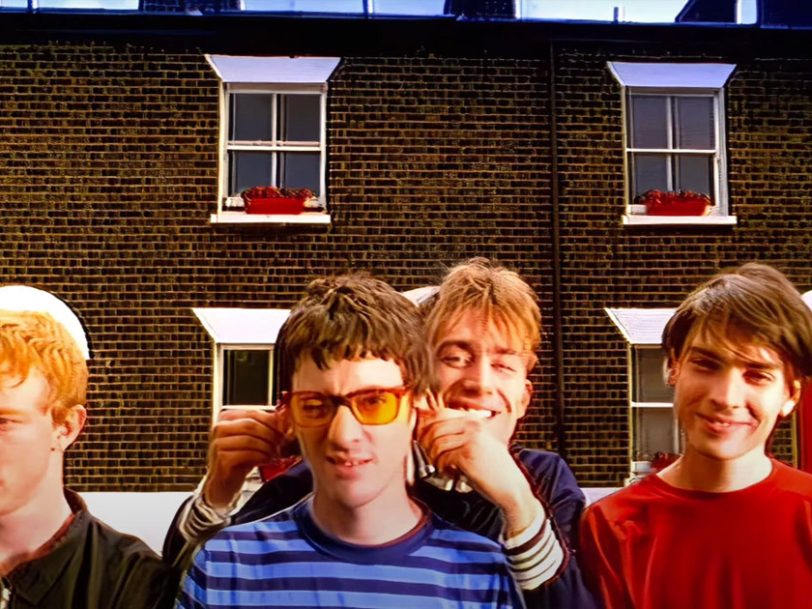Arriving at the studio with long hair and a beard he’d grown for a role in Rodgers & Hammerstein’s Carousel, Daniels may not have looked like the sharp-dressed mod the group had expected, but within 40 minutes he’d nailed the Parklife verses and brought his own personality to the lyrics. “Should I drop the ‘h’?” he asked of the lyric “there will always be a bit of my heart devoted to it”. “If I pronounce it, it’ll sound more adorable.”
“You never knew exactly what the song was about, and I still don’t, which is part of the magic of it,” Daniels later admitted. “What I do know is that as soon as it began to get played on the radio, dustmen started apologising for waking me up in the morning.”
The release: “Just as Damon had predicted, the mainstream of music did change”
By the time Parklife was released as its parent album’s third single, on 22 August 1994, lead single Girls & Boys had already taken Blur into the UK Top 5 for the first time, and the ennui-laden ballad To The End had further established the group’s range in the eyes of a public that had now wholeheartedly embraced them. Given a promo video that featured Daniels and Albarn as double-glazing salesmen, and the rest of the band as characters from the song (Coxon appears as the “gut-lord marching”; Alex James as one of the “joggers who go round and round and round and round and round”), Parklife went to No.10 in the singles chart, where it not only established itself as the group’s signature song, but also confirmed that Blur were spearheading a unique moment in British pop history.
“Just as Damon had predicted, the mainstream of music did change,” Dave Rowntree later noted. “Everything about ‘indie’ disappeared, and indie became the new pop music.”
Reflecting on how, in a little over a year, Blur had almost singlehandedly boosted the credibility of a British scene that had become overshadowed by its US counterpart, Coxon added: “It was quite a relief that British music was suddenly being appreciated again.”
The legacy: “It epitomises what Blur were about – having fun and doing exactly what you want to do”
Parklife the album would spend a staggering 119 weeks in the UK Top 100 – well into the campaign for its follow-up, The Great Escape. That album, and particularly its lead single, Country House, would throw Blur into the media-fuelled “Battle Of Britpop”, one instigating factor of which was the 1995 BRIT Awards ceremony, at which Blur made history by becoming the first group to win four awards in one night, including Best British Album and Best British Group, with the Parklife song coming away with Best British Single and Best British Video.
In the decades since, Parklife has become an almost permanent fixture at Blur concerts, and was even performed during the closing ceremony of the 2012 London Olympics, in an arrangement for the brass bands of the British Army’s Household Division. The song’s quintessentially British world view has also, on occasion, been reinterpreted for overseas audiences. In 2015, during Blur’s tour for The Magic Whip, comedian Fred Armisen joined the group on stage at the Hollywood Bowl to translate the song for a Los Angeles crowd more au fait with recycling collections and gridlock on Route 101 than they were notions of dustmen and “morning soup”.
For his part, Phil Daniels has regularly travelled with Blur to reprise his turn as the song’s narrator. “I’ve been all over the world doing it,” he told Radio X ahead of the release of the group’s 2023 comeback album, The Ballad Of Darren. Damon always said, ‘You can do it whenever you like. I’ll tell you when we’re going to an interesting country, and you can come along if you want.’ So I’ve been to Japan, South America, America… All over the place.” The actor was also called back into in the studio a decade on from the Parklife session, to recite the verses on Me, White Noise, the hidden track on Blur’s 2003 album, Think Tank.




